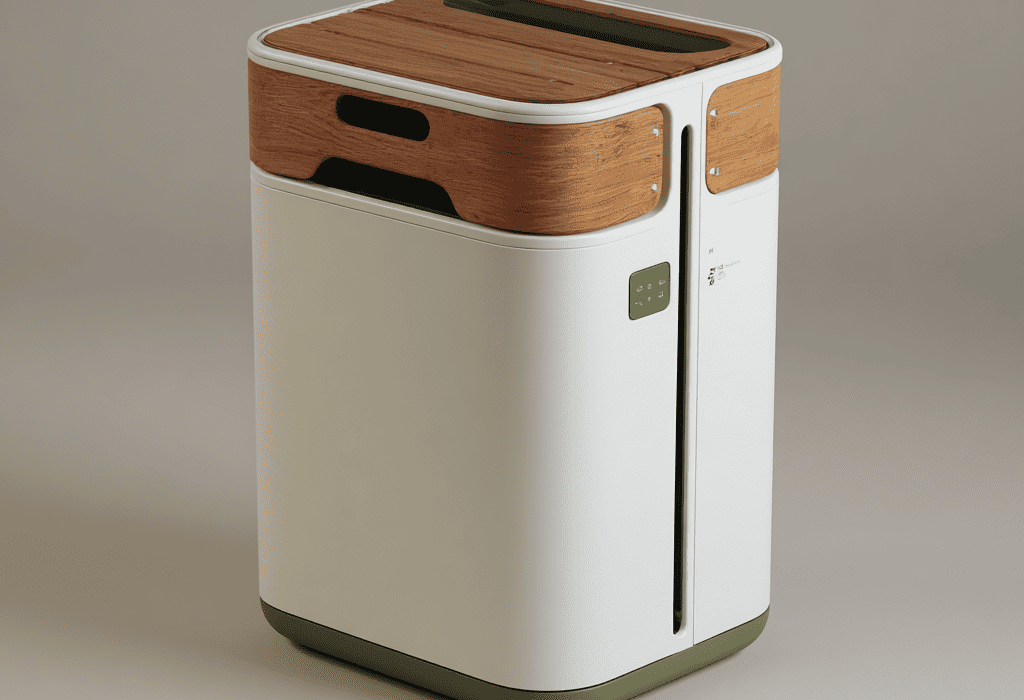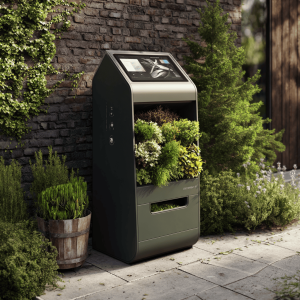
You’ve made the fantastic choice to use compostable products. You’ve enjoyed meals on sturdy, sustainable Paper Plates and toasted with Biodegradable Cups. You’ve neatly collected your food scraps in certified Compostable Bags. Now comes the most rewarding step: completing the cycle. This is where your individual actions connect to a larger, community-wide effort, and it all starts with knowing how to find a composter near you. This isn’t a daunting chore; it’s an exciting opportunity. It’s the moment your kitchen scraps transform from waste into a valuable resource, and you become an active participant in your local ecosystem. This guide is your friendly roadmap to connecting with the composting world right outside your door, turning a simple habit into a powerful collective achievement.
Think of composting not as getting rid of garbage, but as harvesting a crop of nutrient-rich soil. By finding the right outlet for your compostables, you’re feeding local farms, enriching community gardens, and reducing landfill waste. It’s a tangible act of hope and regeneration. Let’s explore the many positive pathways you can take to close the loop.
The Mindset Shift: From Waste Disposal To Resource Harvesting
 The first and most important step is a shift in perspective. Instead of thinking, “Where can I throw this away?” we can start asking, “Who can benefit from this resource?” This simple change transforms the entire process from a burden into a mission. Your banana peels, coffee grounds, and compostable packaging are not trash; they are ingredients for healthy soil, which in turn grows more food, supports biodiversity, and captures carbon.
The first and most important step is a shift in perspective. Instead of thinking, “Where can I throw this away?” we can start asking, “Who can benefit from this resource?” This simple change transforms the entire process from a burden into a mission. Your banana peels, coffee grounds, and compostable packaging are not trash; they are ingredients for healthy soil, which in turn grows more food, supports biodiversity, and captures carbon.
This mindset is contagious. When you actively seek out a composting solution, you join a growing community of people who see the potential in what others overlook. You’re not just disposing of waste; you’re contributing to a circular economy right in your own neighborhood. This feeling of connection and purpose is the fuel that makes the process feel effortless and joyful.
Pathway 1: The Municipal Magic – Your City’s Curbside Program
For many, the easiest way to start is right at the curb. A growing number of cities and towns are launching curbside organics collection programs, similar to recycling and trash pickup.
-
How To Find It: The best place to start is your city or municipality’s official website. Search for “residential composting,” “organics collection,” or “food scraps recycling.” These programs often provide you with a small kitchen pail and a larger outdoor cart, making the separation process incredibly simple.
-
The Positive Impact: Participating in a municipal program is a powerful vote of confidence for local sustainability initiatives. High participation rates help these programs expand and become permanent, making composting accessible to even more residents. It’s a fantastic way to be part of a city-wide environmental victory every single week.
Pathway 2: The Community Connection – Gardens, Farms, And Drop-Offs
If your city doesn’t offer curbside pickup, don’t worry! Some of the most rewarding composting connections happen at the community level. This pathway is all about building relationships and seeing the direct impact of your actions.
-
Community Gardens: These are often thrilled to receive compostable donations. Gardeners understand the value of “black gold” and are usually happy to accept contributions from the community. A quick online search for “community gardens near me” can yield great results. Reach out to the garden coordinator—you might even get a tour to see how your scraps help grow food for the neighborhood!
-
Local Farms: Many small-scale, sustainable farms operate their own composting systems and welcome drop-offs. Websites like LocalHarvest.org can help you find farms in your area. Supporting a local farm in this way connects you directly to your food source and strengthens the local agricultural economy.
-
Formal Drop-Off Sites: Many towns have established public drop-off locations for compostables. These might be at farmers’ markets, recycling centers, or even local schools. Check your municipality’s website or search for “compost drop-off near me.” These sites are designed for convenience, often with clear signage on what is accepted.
Pathway 3: The Tech-Savvy Solution – Apps And Sharing Networks
The digital age has made connecting with composters easier than ever. Several innovative platforms and apps are designed to bridge the gap between people who have compost and people who want it.
-
ShareWaste: This brilliant platform connects people who have kitchen scraps with neighbors who are composting in their backyards. It’s like a dating app for your food waste! You simply find a “host” near you on the map and arrange a drop-off. This not only solves your composting needs but also fosters wonderful, hyper-local connections with like-minded people in your community.
-
Local Social Media Groups: Don’t underestimate the power of local Facebook groups or Nextdoor. A simple post like, “Hello neighbors! I’m looking for a home for my food scraps and compostable products. Does anyone have a compost bin that would welcome donations?” can often yield immediate and friendly responses. This approach taps into the spirit of neighborhood mutual aid.
Making The Drop-Off A Positive Ritual
Once you’ve found your composter, turning the drop-off into a pleasant ritual reinforces the positive habit.
-
Storage Is Key: Keep your scraps in a sealed container in the freezer. This prevents odors and allows you to make fewer, larger trips. Your certified Compostable Bags are perfect for this, keeping everything neat and contained.
-
Combine Trips: Plan your compost drop-off around other errands. Are you going to the farmers’ market on Saturday? Perfect! That’s when you’ll take your week’s collection. This integrates composting seamlessly into your life rather than making it a special trip.
-
Bring The Family: Make it a family activity. For children, seeing a community garden or farm where their apple cores are turned into soil for growing vegetables is a powerful and educational lesson about nature’s cycles.
What About Your Compostable Products?
A common question is whether community composters accept products like compostable plates and cups. The answer is: it depends. Always check with the specific program or individual.
-
Commercial Facilities: Most municipal and large-scale commercial composting facilities are equipped to handle certified compostable products, as they achieve the high temperatures needed for breakdown.
-
Backyard Composters: Individual backyard compost piles may not get hot enough to break down these products quickly. Your ShareWaste host or community gardener will be able to tell you their preference. When in doubt, stick to food scraps and yard waste for backyard systems.
The Ripple Effect Of Your Action
Your decision to find a composter does more than just divert waste. It creates a positive ripple effect. You are:
-
Reducing Methane Emissions: Food scraps in landfills decompose without oxygen, producing methane, a potent greenhouse gas. Composting is a aerobic process that avoids this entirely.
-
Building Soil Health: The compost created from your scraps revitalizes soil, reducing the need for chemical fertilizers and helping land retain water.
-
Inspiring Others: When friends and neighbors see you composting, it normalizes the behavior and sparks curiosity. Your positive action can inspire a chain reaction within your social circle.
Finding a composter is the keystone habit that turns your sustainable choices into tangible impact. It’s the satisfying final chapter in the story of your food and products. It connects your kitchen to your community, your actions to the earth, and your choices to a healthier future. So take that first step today. A quick online search is all it takes to begin an incredibly rewarding journey of closing the loop, together.

